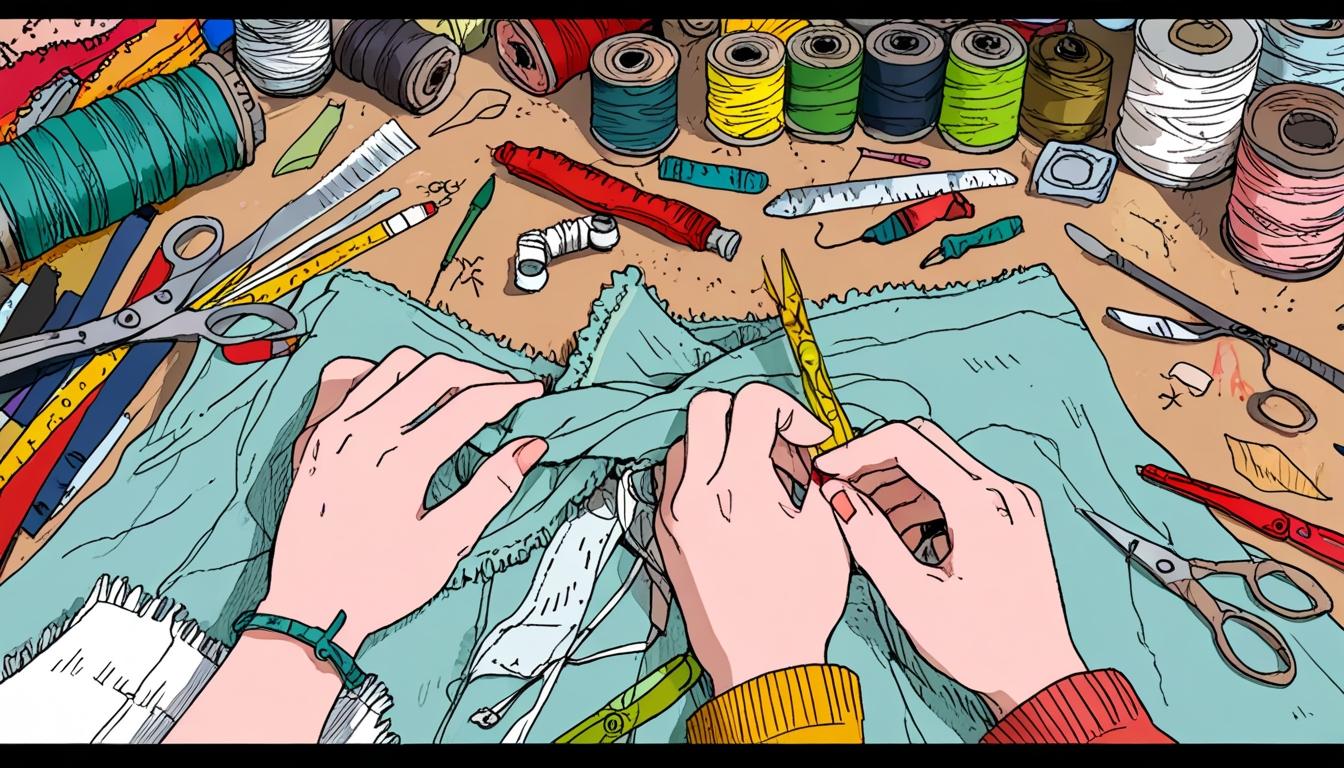The British government’s Board of Trade initiated a Make Do and Mend campaign in 1942 during the Second World War to encourage resource conservation by teaching basic sewing skills and repurposing men’s clothing into women’s fashion. Drawing inspiration from this historical effort, the non-profit social enterprise Fashion Revolution is set to launch a Mend in Public Day this weekend, offering free local community classes worldwide that teach mending and stitching techniques.
Unlike the wartime campaign addressing scarcity, Fashion Revolution’s initiative targets overconsumption in the modern fashion industry. The current fast fashion model, characterised by cheap prices and rapidly changing trends, has made fashion the world’s second most polluting industry after oil and gas. It contributes approximately 10% of global carbon emissions. Environmental issues linked to this industry include the infiltration of synthetic microfibres into food chains and the accumulation of discarded clothing, as exemplified by a viral satellite image showing a vast pile of clothes in Chile’s Atacama Desert in 2023. The prevalent “wear once, then toss” culture is perpetuated by the affordability of replacing or discarding damaged clothing items rather than repairing them. Even the prospect of tariffs on fast-fashion companies like Shein and Temu appears unlikely to curb consumption significantly due to the very low base prices of their goods.
Fashion Revolution defines the Mend in Public Day scheme as a form of protest against throwaway fashion, stating, “In an age of throwaway fashion, repairing our clothes is a revolutionary act.” They emphasise the importance of localised actions to address the varying global impacts of the fashion industry. The event promotes not only visible repair but also upcycling – the process of creatively reusing garments or discarded materials to make new products.
Several designers and independent brands are leading the way in upcycling fashion. Notable examples include Ahluwalia, whose spring/summer 2025 collection features knitted ribbed tops made from deadstock fabrics and upcycled doilies; celebrity-endorsed and French designer Marine Serre, who repurposes textiles like old terry cloths and silk scarves into new garments; and UK brands such as World Secrets, which crafts clogs from antique kilim rugs, Helen Kirkum, who reconstructs secondhand trainers, Pikol Clothing, known for making holiday shirts from vintage tablecloths, and Spilt Milk, producing an array of items from vintage textiles.
To assist individuals with damaged or unwanted clothing, a new upcycling app named Loom has launched. The app allows users to upload photographs of their items and connects them with designers who offer services ranging from visible mending to redyeing and redesigning garments.
In a landscape where fashion trends often appear and disappear within days, Fashion Revolution’s Mend in Public Day, along with upcycling initiatives, encourages a shift toward repairing and reworking beloved clothing, representing a significant alternative approach within the fashion consumption cycle.
Source: Noah Wire Services
